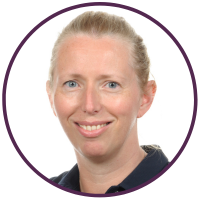Navigating career currents: science, leadership and gender equality

 Francoise de Longueville (right) is the Managing Director at Eppendorf Application Technologies (Namur, Belgium) and Head of the Global Core Test lab at Eppendorf SE (Hamburg, Germany).
Francoise de Longueville (right) is the Managing Director at Eppendorf Application Technologies (Namur, Belgium) and Head of the Global Core Test lab at Eppendorf SE (Hamburg, Germany).
In this interview, Dr de Longueville reflects on pivotal moments in her career and explores how diversity is a key driver of innovation.
What motivated you to pursue a career in science?
Initially, I wanted to study oceanography as it applies chemistry, meteorology, biology and other scientific fields to the study of the ocean. It was all the more important as my passion was windsurfing. For those reasons, I decided to start biology studies. During my time at university, I discovered the genetic engineering field and, more particularly, methods of recombinant DNA technology. The idea of being able to solve human health issues by studying the molecular aspects of the cell became the clear objective for my professional life.
Have there been moments in your career where you made significant pivots or decisions that led to your personal and professional growth?
In 2011, the parent company of my entity decided to carry out a collective layoff due to economic restrictions. At that time, I was already part of the management. After careful consideration, I made the decision to stay and take over the management of the company after the dismissal.
It was a key step in my professional career. Personally, going through a collective layoff is emotionally very difficult. On the other hand, I will never forget the weeks that followed the departure of our colleagues. I found myself at the head of a very small entity with colleagues who had also decided to stay. I had the responsibility of my colleagues, and my greatest motivation was, and still is, to perpetuate the entity.
Looking back, this situation pushed me to bounce back and gave me the courage to move forward. It was at that moment that I realized that I had become a manager, responsible for leading the team and providing work for my colleagues.
Without this tragic stage I wouldn’t be the person and certainly not the leader I am today.
What advice would you give to young women pursuing careers in the life sciences industry?
Choose a field that you are passionate about. I chose life science as I wanted to have a positive impact on health. When I started, I never thought I would become managing director of one of the entities of a global group. Indeed, I started my career as a PhD student, driven by an academic career but already in connection with a private company in the pharmaceuticals.
Do not think that you cannot do so just because you are a woman. Accept the challenge and move forward.
How important is it to have specific communities and resources for women in STEM?
The STEM industries are still heavily biased in some areas and women are also heavily underrepresented in some STEM fields. Educating, training and hiring more women and other underrepresented groups in STEM can also lead to better scientific outcomes.
Increasing the diversity will leverage the variety of perspectives and ideas to give an additional competitive edge. Each person brings their own experience, knowledge, and background, which, when put together, results in better outcomes and innovations. A team of people with different cultures and backgrounds, all seeing the world in different ways, benefits creativity.
What can the industry do to improve the proportion of women in leadership positions?
Still now, women are, in general, under-represented in leadership positions. Indeed, balancing professional and family responsibilities is a major difficulty in the daily lives of working women: 60% of employees who are mothers say they feel an additional mental burden regarding the management of their professional and parental lives.
Despite the progress made by companies in recent years to reconcile the professional and private lives of their employees – particularly thanks to teleworking – significant resistance remains. In France, for example, productivity and efficiency are often measured based on hyper-presence. This posture is most often adopted at the start of a career but around the age of thirty, it is no longer tenable when the employee wishes to settle down and have a family life. Thus, it becomes essential to rebalance your time between your professional life and your personal life. This can be favored by a flexible approach, including working fewer or different hours, working compressed hours, working from home, and job sharing. Providing this is also an effective way of showing women that leadership positions are a possibility. As long as deliverables and goals are met, give women the flexibility to balance family life and their careers.
The opinions expressed in this interview are those of the author and do not necessarily reflect the views of RegMedNet or Taylor & Francis Group.
